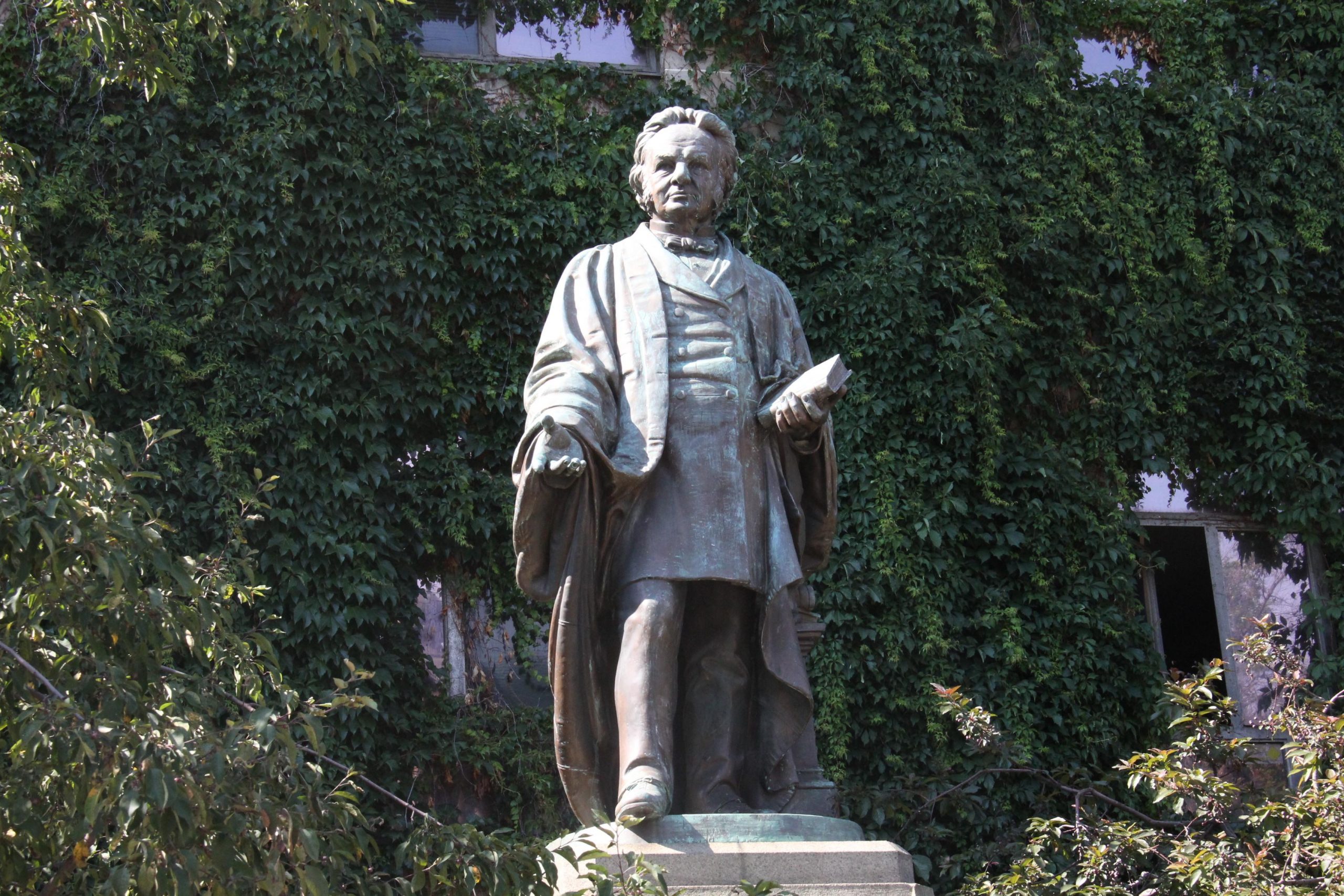Sara Khan (9) | STAFF REPORTER
Mankind has always had a tendency of idolizing successful people such as warriors, scientists, philosophers, presidents, and more. It helps give us a goal to work towards, and an idea of what we want to become. These figures are often honoured with memorials, like statues, plaques, and sometimes having something named after them, like a building. The problem arises when such prominent people make controversial decisions later in life, or when times change and their previous decisions are looked down upon. In those situations it becomes unclear what to do with their memorials. Should they be left up to honour their previous accomplishments? Or should they be taken down to discourage the idol’s misdeeds and show support towards the offended group of people? read more






